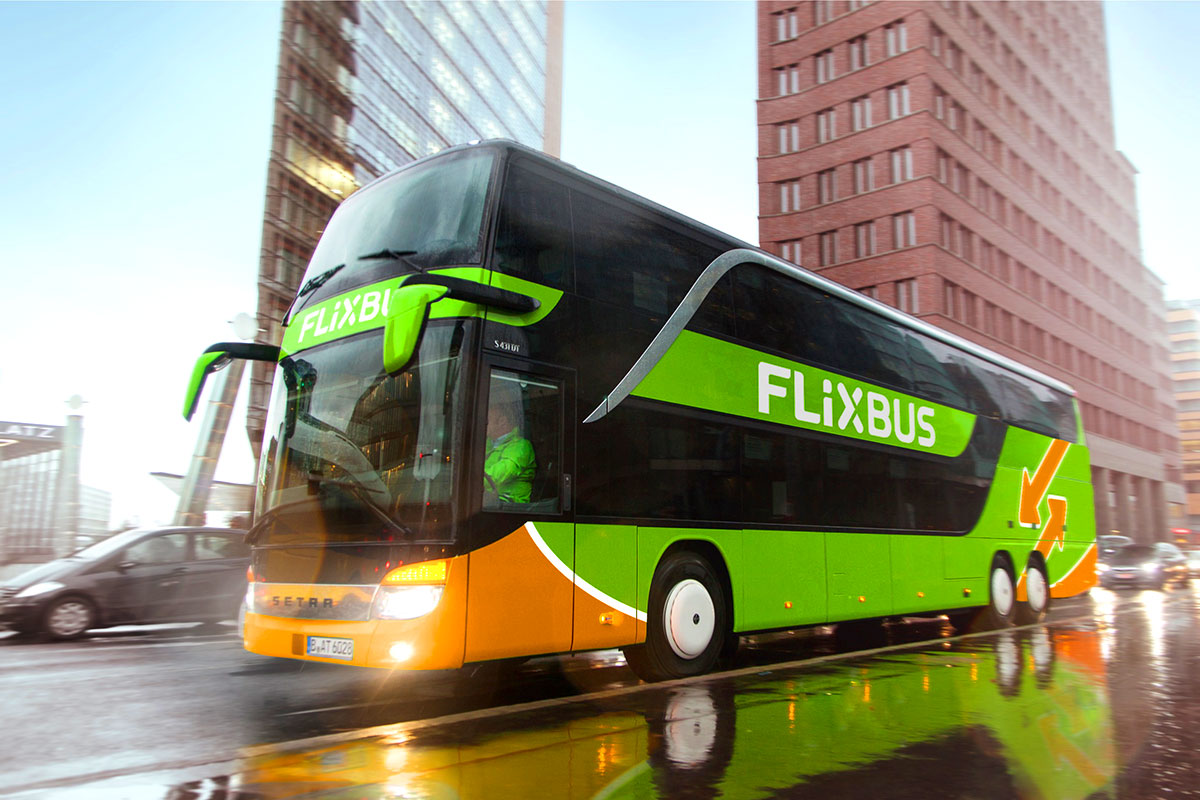RIO DE JANEIRO, BRAZIL – German startup FlixMobility, owner of FlixBus and FlixTrain brands, plans to land in Brazil still this year. Sources close to the company said that, valued at US$3 billion, it is determined to invest an important part of its latest US$650 million round, announced on Wednesday, June 2, to start its bus operations in Brazil in 2021.

Founded in 2013 by former BCG consultants André Schwämmlein and Jochen Engert and former Microsoft employee Daniel Krauss, FlixBus was created to leverage the openness of Germany’s transportation sector. With a model similar to Uber’s, the company chose to build a strong brand of road buses without owning vehicles, and brought fares down considerably.
The startup’s strategy consists of partnering with small local companies that operate on its behalf, while its staff is dedicated to route planning, fare pricing, and online sales. Through acquisitions, it has established itself as one of the largest companies in the sector in Europe, and today connects over 2,000 cities in 30 countries. The company has also been active in the train sector since 2018, and has expanded into the United States.
Entering the Brazilian market is not a new goal for the company. Edson Lopes, former director of operations at hotel startups OYO and head of several teams in Uber’s Brazilian operation, was hired by the company in late 2019 to organize the company’s launch in Brazil.
To help him, Gloria Burlamaqui, former manager of Lime and Airbnb, was brought in to run operations in the country. Two reasons prevented the startup’s plans from getting off the ground in 2020: the coronavirus pandemic and the sector’s regulatory challenges.
After transporting 62 million passengers in 2019 and receiving a US$500 million investment, FlixBus was ready to expand to South America and Asia in early 2020, when the Covid-19 crisis began. Like other tourism and transportation companies, it saw its revenues plummet in all the markets in which it operates.
Despite adopting safety measures, the startup was forced to paralyze most of its operations and expansion plans. According to information from U.S. Techcrunch website, the company was only able to launch a few new routes in Portugal and the UK.
The team in Brazil then seized the pause period to look for local bus companies that could be partners, develop routes, work on pricing and organize the regulatory aspect.
Now, with vaccination advancing in Europe and the United States, the founders of FlixBus are starting to see the light at the end of the tunnel. They expect that during the Northern Hemisphere summer, which begins on June 21, the business figures will return to pre-pandemic levels. The capital contribution was the push that was lacking for its international expansion plans to be taken out of the drawer in 2021. Brazil and the United States, two major ground transportation markets, are the company’s major focuses at the moment.
In Brazil, FlixBus is expected to start operating in the most popular routes in the country, such as São Paulo-Rio de Janeiro, offering prices up to 40% cheaper than traditional bus companies.
The challenge lies in the fact that, to start operating, FlixBus is waiting for the regulatory ageny authorization. People close to the company said that the executives are optimistic that they will get the go-ahead from the National Land Transport Agency (ANTT) in 2021.
Should this fail, the company is willing to invest part of its resources in a judicial dispute or in the acquisition of a company from the sector currently authorized to operate its desired routes. The message is clear: no matter the path, the goal is to start operating in Brazil still this year.
Buser, a startup from Minas Gerais, founded in 2017 by aeronautical engineer Marcelo Abritta, is the startup with the model most similar to that of FlixBus in Brazil. The company offers customers the option to jointly charter buses to the same destination, which results in cheaper tickets.
The company has attracted investors such as SoftBank, Monashees, Valor Capital Group and Canary, but has sparked the ire of traditional bus companies, which claim that their service violates Brazilian law – according to the norm, passenger transport service between cities is a public service and needs to be authorized by the National Agency of Land Transport (ANTT).
In reaction to the new competition, companies from the traditional sector have been modernizing their service, trying to emulate some of the facilities offered by apps, such as boarding without printing a ticket. Some of them have now developed their own apps to operate in the market. The most famous is WeMobi, from the JCA Group, owner of traditional bus companies such as Auto Viação 1001, Viação Cometa, Viação Catarinense, and Rápido Ribeirão.
Little by little, the regulation is making room for new competitors. The Chamber of Deputies is currently discussing Bill 3.819/20, which has already been passed by the Senate, and establishes new rules for non-regular collective land transportation services.
The text establishes rules for companies interested in operating road lines, such as the need to specify the route, have their own fleet to operate at least 60% of the intended lines and a capital stock of at least R$2 million, but does not limit the number of authorizations that ANTT can grant per stretch of highway.
Source: exame

